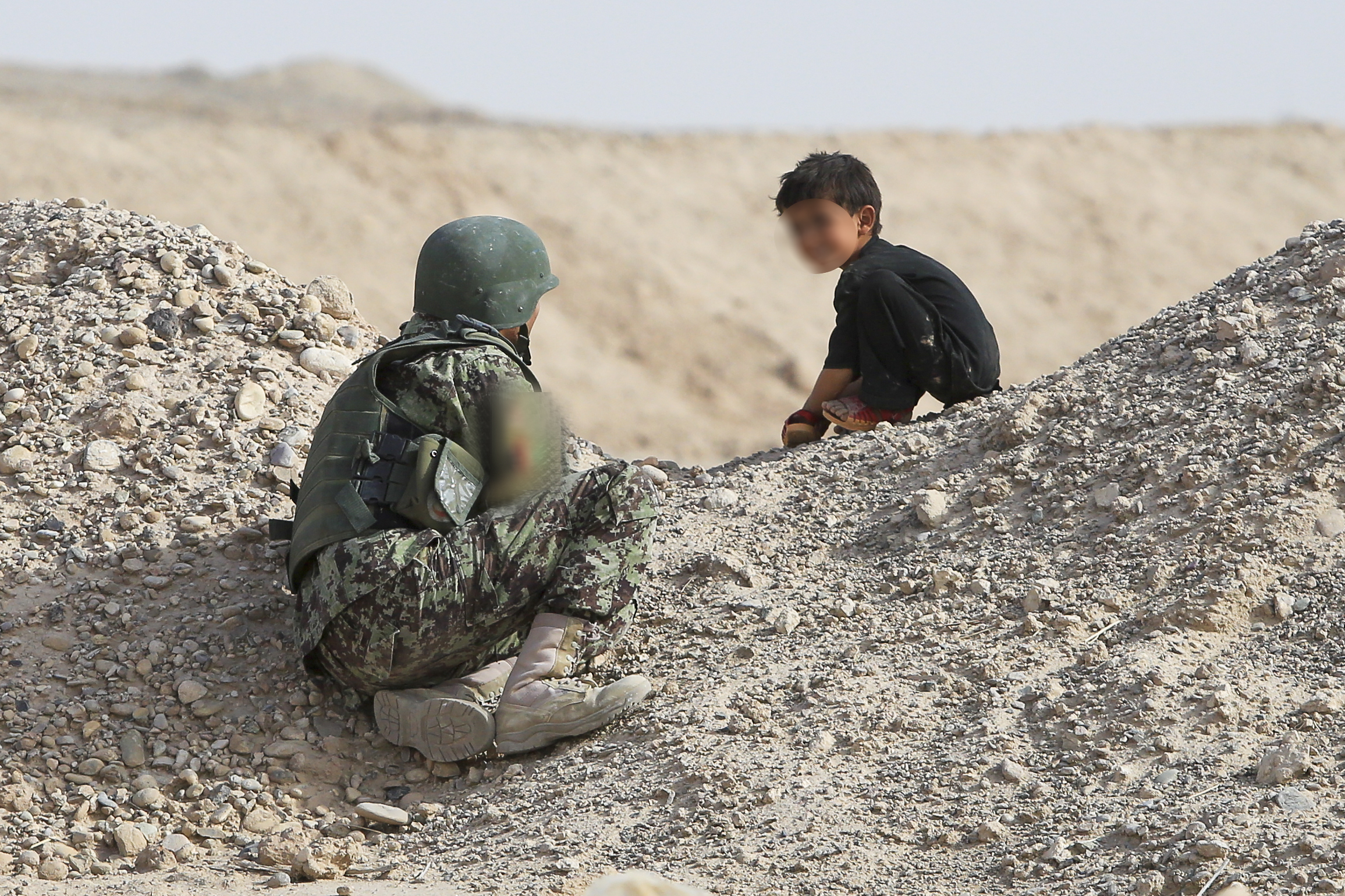American servicemembers who witnessed or were concerned about the sexual abuse of children by Afghan military and police forces in Afghanistan, including so called "boy play," were told to turn a blind eye to the "custom" and that it was not a priority for the U.S. military there, according to a new U.S. government report.
A servicemember interviewed by the Defense Department's Inspector General "indicated awareness of an Afghan commander keeping little boys for pleasure," reads a section of a new IG report, published today [PDF]. "The interviewee reported to the chain of command and had been told, 'There's nothing we can do about it,' 'It was out of our control,' 'This is Afghanistan,' or 'It's their country.'"
Another servicemember said American troops told their command about instances of "bacha bazi," a local term for boys who are kept by powerful Afghan men as servants and often sexually exploited, but were told to "ignore it and drive on."
Another stated that during pre-deployment training in North Carolina, he or she was told by instructors that if child abuse was discovered, he or she should report it to local authorities, but otherwise stay out of it "due to maintaining cooperation with the Afghans."
The Inspector General report largely confirms a troubling 2015 New York Times report on the alleged widespread child abuse by Afghan police and military forces. That article related an anecdote from the late Lance Cpl. Gregory Buckley Jr., who reportedly told his father that American servicemembers could often hear Afghan police officers sexually abusing boys.
"At night we can hear them screaming, but we're not allowed to do anything about it," Buckley's father recalled his son saying. "My son said that his officers told him to look the other way because it's their culture." Lance Cpl. Buckley was killed during a deployment in 2012 by one of a number of young boys living at a joint U.S.-Afghan base with an Afghan police commander, the Times reported.
A former Marine Corps company commander who served in Afghanistan told Code and Dagger today that the sexual abuse of boys was "common knowledge." He said the abuse was noted in "significant action" reports in the field, but otherwise U.S. troops were told not to interfere with the "way of the locals." The Marine said in one case in 2010, a high-ranking Afghan National Police officer was known to have had a boy "he kept" until the boy's parents forcibly took the child back.
The Inspector General report was compiled to examine several questions surrounding the alleged abuse, the appropriate reporting system for U.S. forces in country and whether the Leahy Law -- a law that directs the U.S. government to withhold support funds that would go to any military unit shown to violate human rights -- was being applied properly.
The report said that the military is not applying the Leahy Law in a timely manner and has granted exceptions under the "notwithstanding authority," which allows funding to keep flowing as long as certain other corrective actions are taken. Legally, the IG found that American forces are not prohibited from stopping the abuse when they see it, including through the use of force, but they are not obligated to do so. In the wake of the New York Times report, in September 2015 the military updated its procedures, telling servicemembers to report potential human rights abuses, "including suspected child abuse," up the chain of command.
From 2010 to 2016, the IG said it could only confirm 16 cases of allegations of child sexual abuse being reported to the military, but said that because there was no uniform, precise guidance for reporting procedures, it's impossible to know how many instances were actually witnessed. The IG withheld information on those 16 instances, claiming it was all classified.
A spokesperson for the Embassy of Afghanistan in Washington, D.C. did not immediately respond to a request for comment from Code and Dagger. After the New York Times report, Afghan President Ashraf Ghani said in 2015, “The laws, culture, and religious values of the people of Afghanistan recognize sexual abuse of children as one of the severest crimes and violations of human rights."
Full 2015 Training Slides, per IG:
[Do you have a tip or question for Code and Dagger? Reach us at CodeAndDagger@protonmail.com. And if you like what you read and want to help keep the site running (kind of) smoothly, click here to learn how you can lend your support. ]















